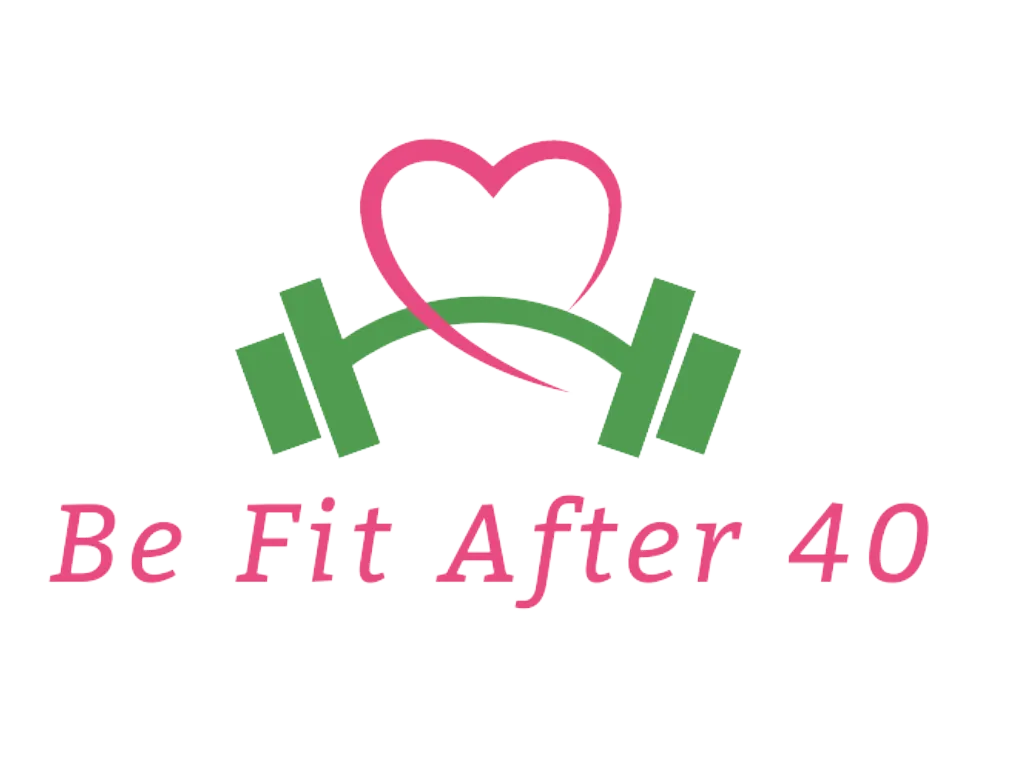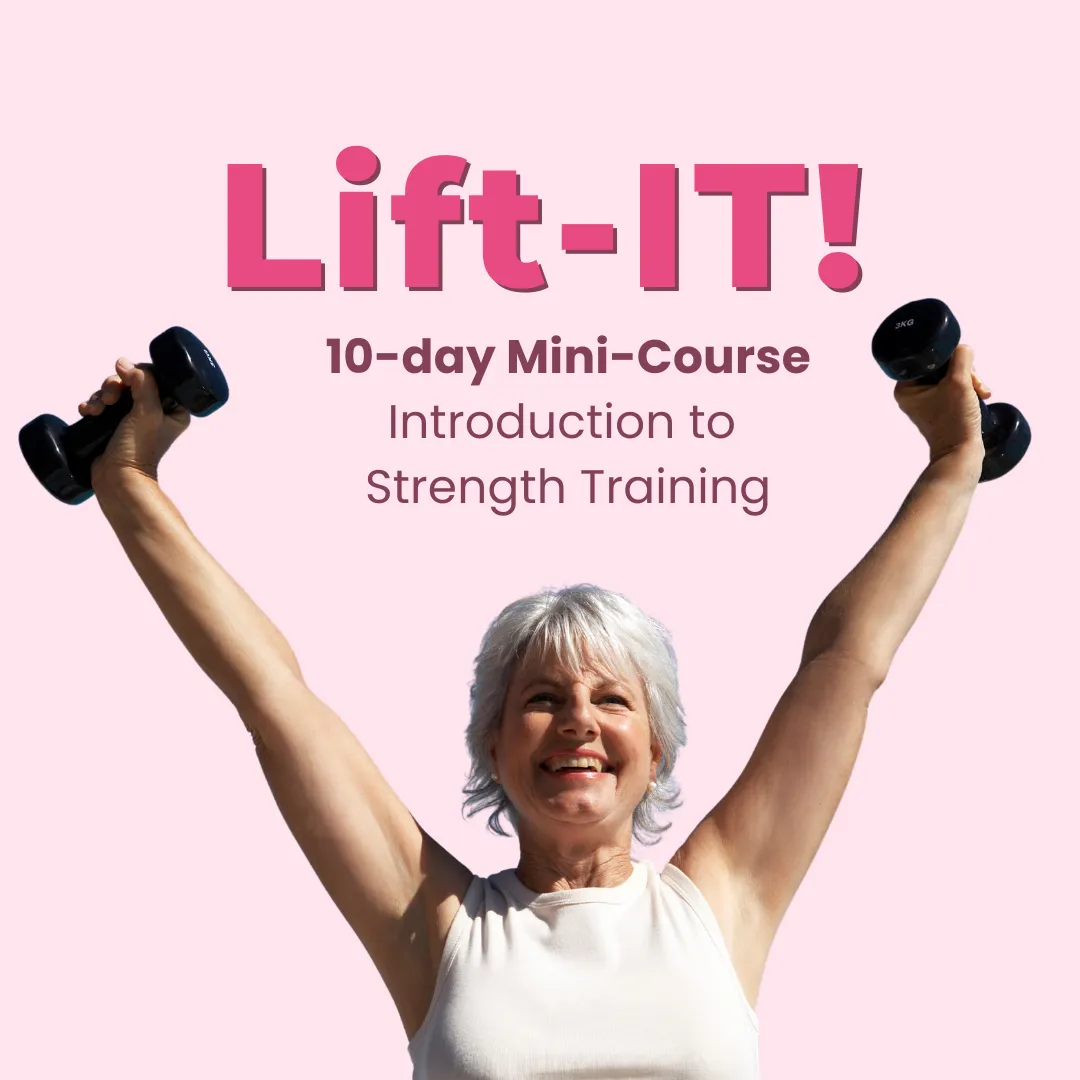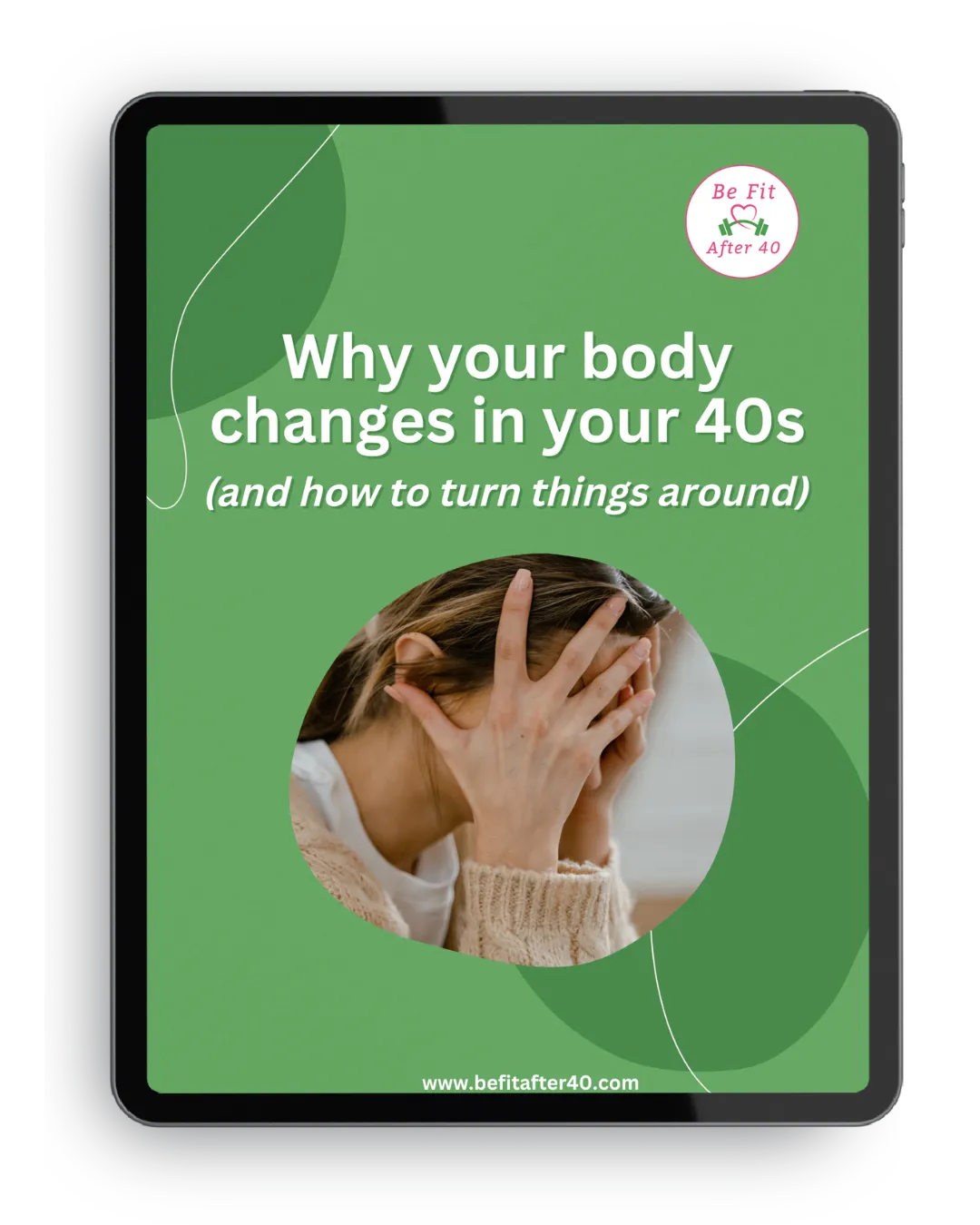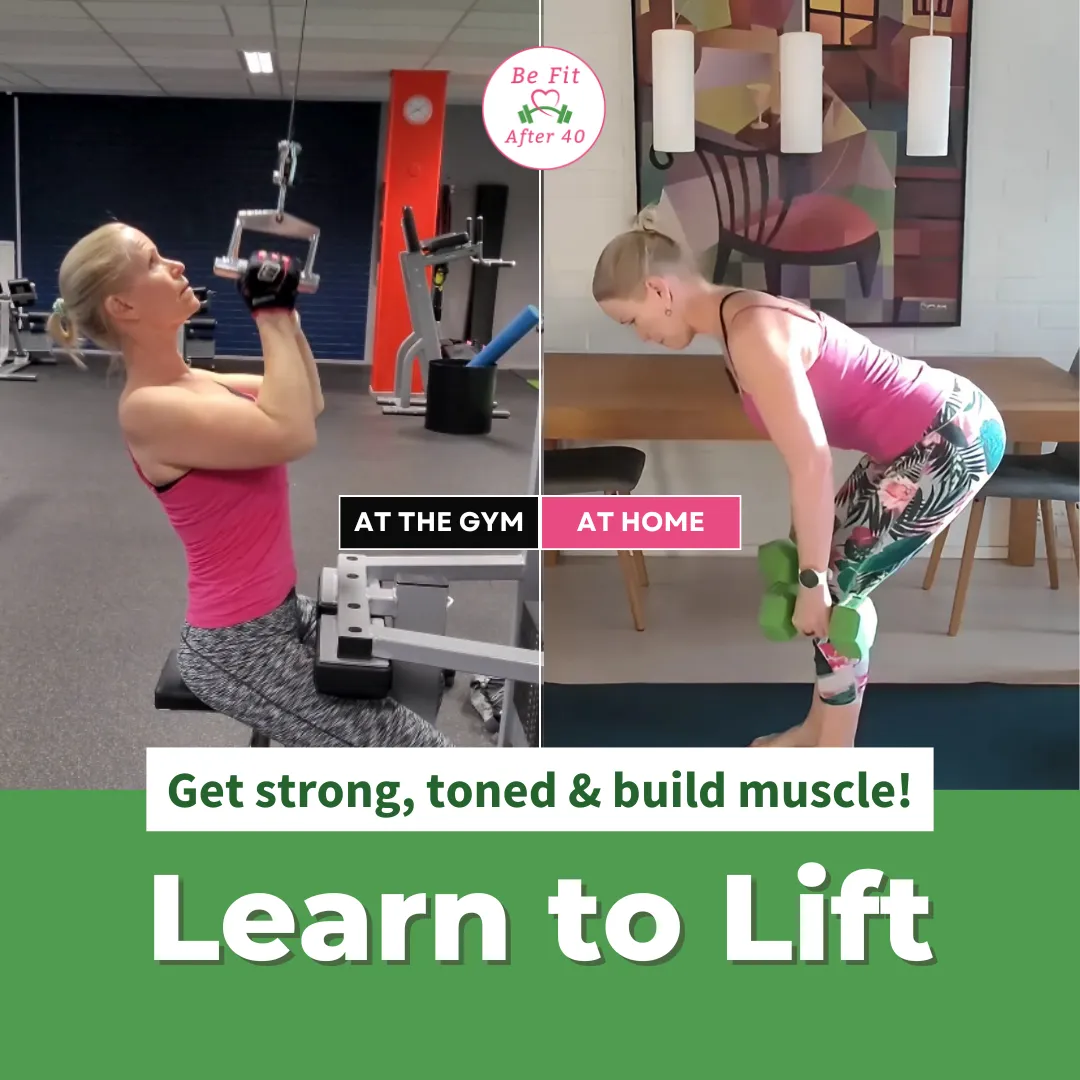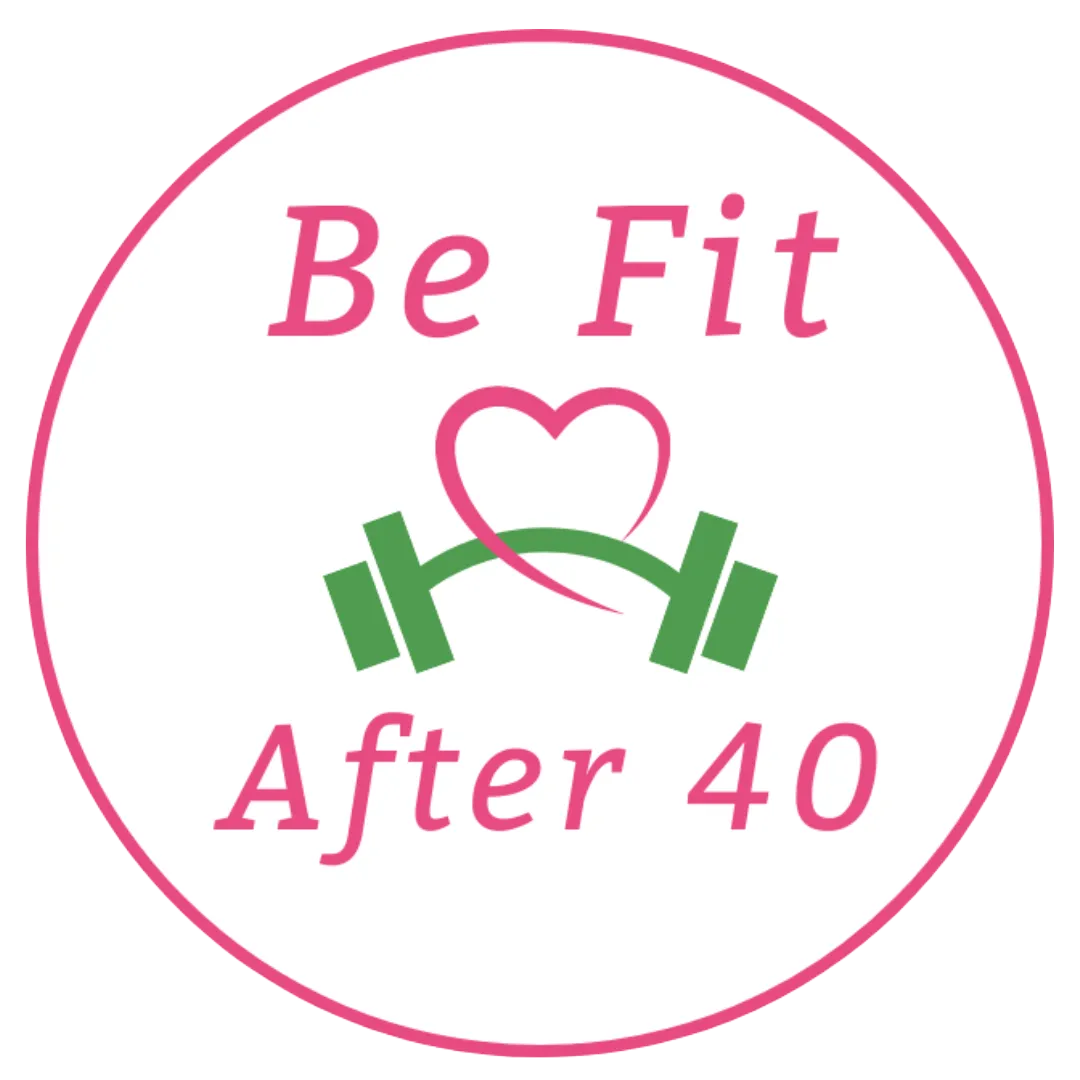Get strong, fit & toned - and feel amazing in your body again!
Get Stronger in Midlife - the Simple Way to Start
Strength training made easy for women 40+. Build muscle, feel toned, and stay strong for the decades ahead with clear guidance that makes it easy.
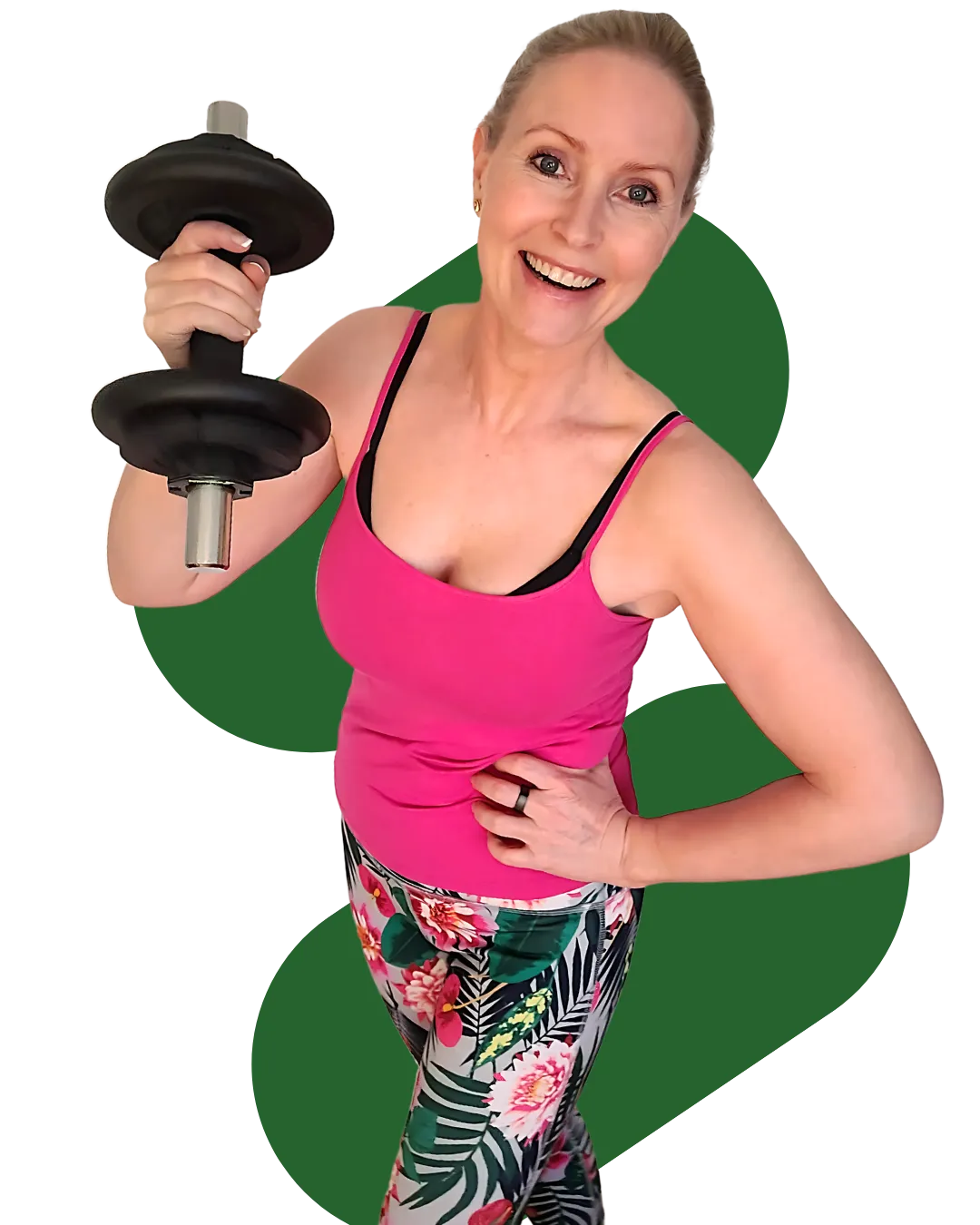
Why Strength Training Matters in Midlife
As estrogen drops, your body changes - in what can feel like overnight. You lose muscle tone, gain belly fat, your groceries feel heavier, and the diet and exercise routines that used to work don't work anymore.
Strength training reverses these changes. It builds muscle, protects your bones, shifts belly fat, improves metabolic health, and you feel stronger and more capable in your daily life.
I’m here to help you get going.
The Benefits of Strength Training
Build & maintain your strength: As we age, our strength & muscle mass naturally decline. This decline accelerates in menopause. Weight training is the best way to get & stay strong so you can continue to live a rich, independent life.
Keep your body functional: Lifting weights not only strengthens your muscles, it also strengthens other parts of your body including your tendons and ligaments. These start to get more brittle as estrogen declines in perimenopause - weight training keeps them strong!
Increase bone density: It has been estimated that women lose up to 10% of their bone density in the first 5 years after menopause! Weight training has been shown to increase bone density even in post-menopausal women. Stronger bones mean a lower risk of bone fractures if you fall.
Decrease visceral fat & belly fat: You cannot spot-reduce fat. However, lifting heavy (for you) sets off a cascade of biochemical reactions in your body which lead to the mobilization of visceral fat and belly fat. That’s great news!
Increase insulin sensitivity: As estrogen levels decline, so does our insulin sensitivity. Weight training counteracts this.
Improved mood: Studies have shown that weight training improves mood and can help with depression – this is great news, especially for perimenopausal women who may be dealing with mood issues. And as women who lift can tell you, there is nothing like the confidence and bad-ass feeling you get from being strong!
Find the Right Program for You
Not sure where to start? Choose the option that fits where you are right now:
Want to try strength training first?
➡️ Lift-IT!
Ready to start with a full beginner program?
Already lifting?
Want to try strength training first? ➡️ Lift-IT!
Ready to start with a full beginner program? ➡️ Learn to Lift
Already lifting? ➡️ Stronger with Lynn
TESTIMONIALS
What My Student Say
"I had wanted to start weight training for a long time but didn't really know what to do. Lynn's program made it easy, and she was there to help whenever I had questions. Now, I lift weights regularly. What I love best is how empowered it makes me feel!"
- NINA, 55

"I was not a fan of weight lifting, but I could see my muscless disappering in menopause. Lynn designed a program for me that fits my life and now I am getting my strength back!"
- SAMANTHA, 45

"Of course I would recommend working with Lynn! She is very knowledgeable and kind. "
- DARLA, 46

"I am now one month in thanks to Lynn, and the changes are enormous already! I am doing all this from home with 5, 10 and 15 lb dumbbells so far! My clothes fit so much better after 4 weeks. Progressive overload is really making me stronger already!"
- SARA, 45

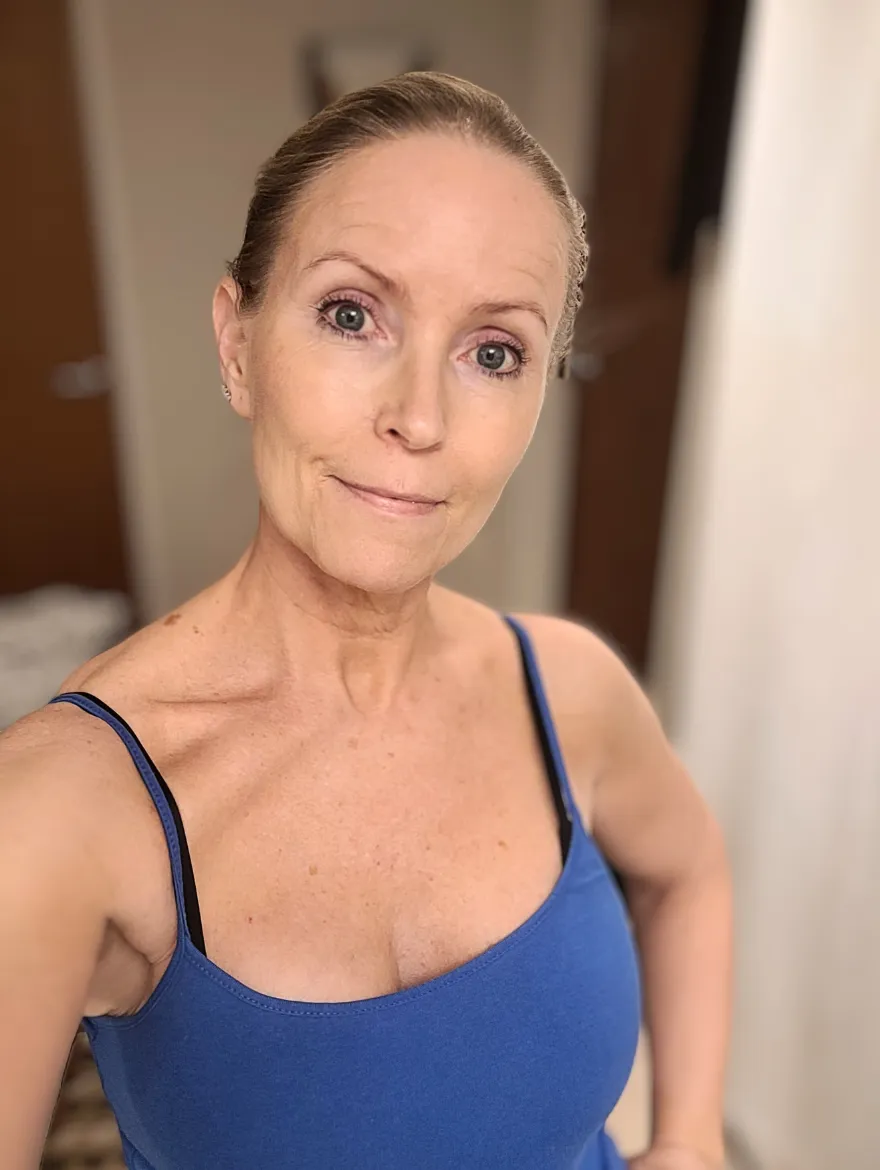
Coach Lynn Sederlöf-Airisto
Cert. Menopause Fitness Coach
Host of 40+ Fitness for Women podcast
Hi! I'm Lynn.
I help women in perimenopause and menopause build strength, gain muscle, and feel confident in their bodies again - with simple, effective strength training that works for this stage of life.
I didn’t start lifting until I was 49. I was working out five days a week but in what seemed like overnight, I lost muscle tone, gained belly fat, and started feeling weaker.
But when I ditched my BodyPump and other group fitness classes and learned to strength train properly it transformed everything.
Now, at 54, I’m fitter and stronger than ever. And I’ve helped hundreds of women start lifting too.
My goal is to help you get strong, feel good in your body, and build the muscle and strength you need to thrive in the decades ahead.
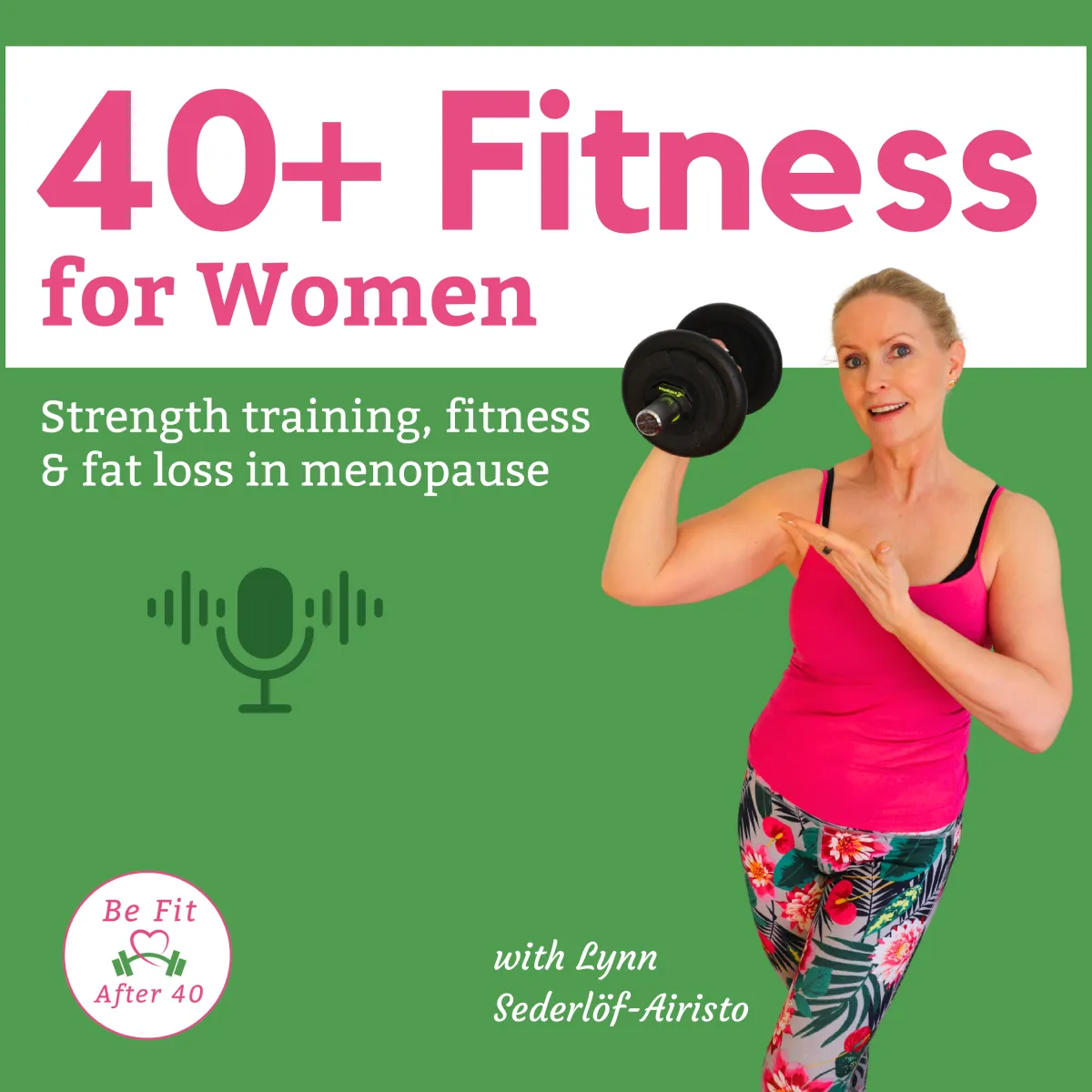
40+ Fitness for Women
Check out my podcast 40+ Fitness for Women. It is the fitness podcast for women in midlife. We can't help getting older but we don't have to get old. I share concrete tips and strategies for how to be fit and healthy today and maintain your quality of life in the decades ahead.
Subscribe for weekly 40+ Fitness tips delivered straight to your inbox!
Follow me on Instagram:
FREE DOWNLOAD
